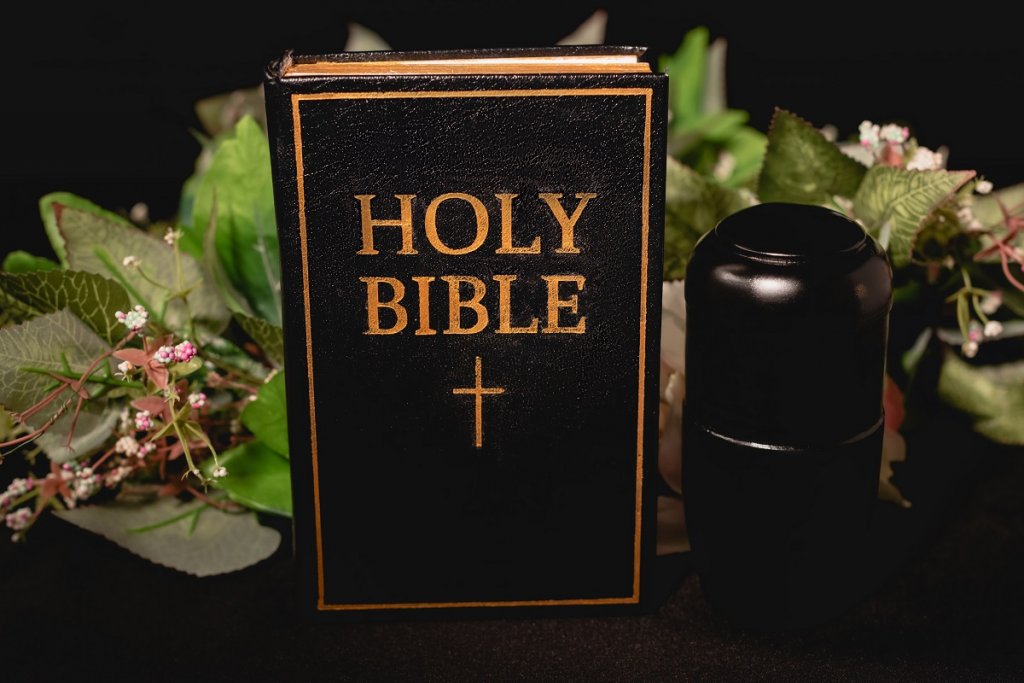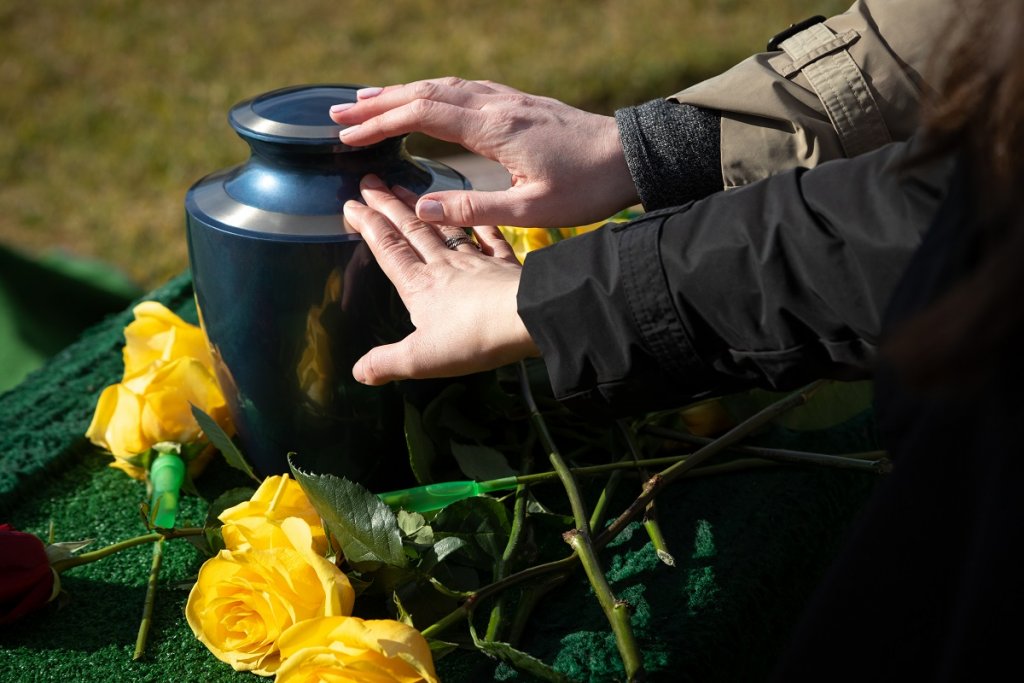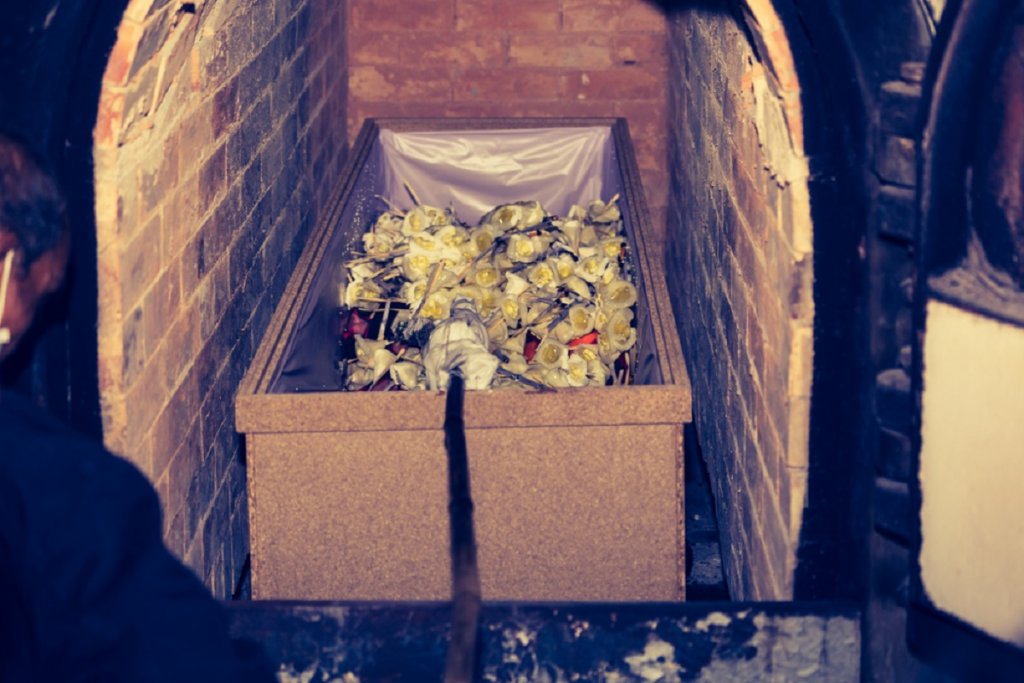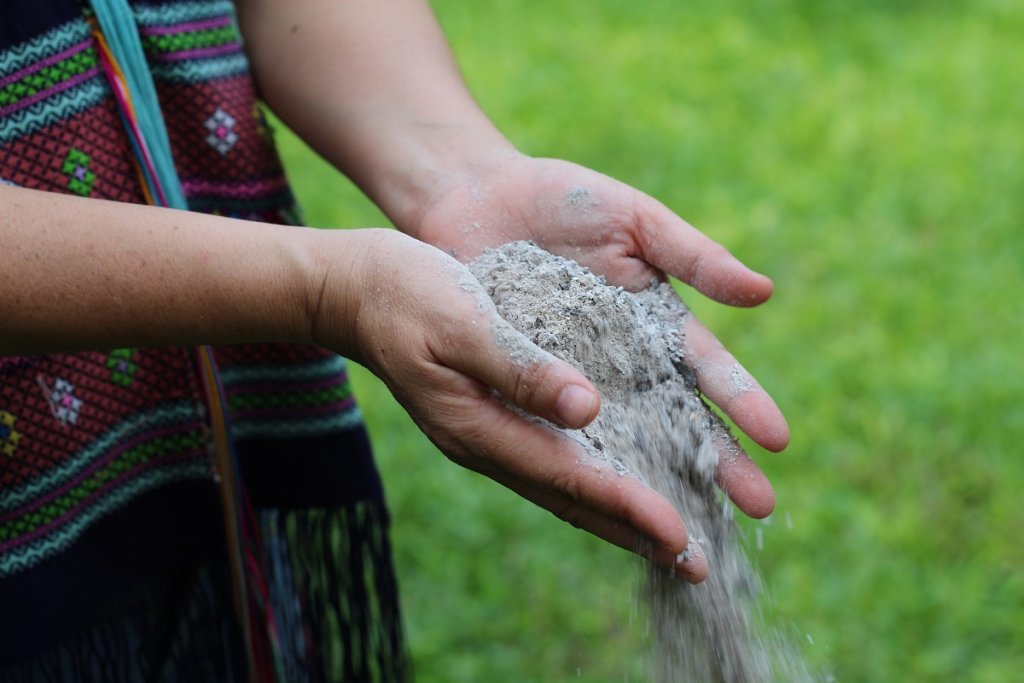Although the Bible says nothing to recommend or denounce cremation, many churches have condemned it over the years. The rejection of the practice was tied to beliefs about the resurrection of the body, but modern thinking accepted by the Catholic Church and others is that as long as the body is created with respect, cremation is acceptable.
Choosing the method of final disposition for a deceased loved one is a matter of personal choice. However, such choices may be affected by your religion, beliefs, and traditions. If you are a Christian, you might be wondering what the Bible says about cremation.

Table of Contents
What Is The Difference Between Cremation And Burial?
If you are in charge of the final arrangements for a family member who recently passed away, you have to respect one’s wishes or the family’s consensus on whether the human remains of your loved one will be cremated or buried. Here are the primary differences between cremation and burial:
- Method of Disposition: A traditional burial always culminates in an interment of the entire body in a plot below ground or crypt above ground. Family members and friends celebrate the life of the deceased during funeral services at a chapel, home, or at graveside.
Meanwhile, cremation subjects the human body to a process using intense heat that will eventually pulverize the body into bone fragments and ashes. The cremated remains can be displayed and memorialized at a later date, buried, or scattered depending on the decision of the closest of kin.
It is important to note that cremation leaves ashes that must be disposed of, even by burial. The term burial usually refers to placing the whole body in a grave. - Flexibility: In traditional funerals, the bereaved follow a certain series of events, usually arranged by funeral service providers according to common practice. This tends to be similar whether the funeral is held at home, a place of worship, or at a funeral home. The process involves embalming in most cases,a wake or viewing, followed by a funeral service, then burial.
Cremation, on the other hand, offers some flexibility and customization when it comes to viewing, memorialization, or interment. The family can choose to have the body cremated immediately without a viewing in a direct cremation or hold a traditional cremation before or after a viewing, then a funeral or memorial. - Memorialization: The family of the deceased often follows specific rules outlined by cemeteries, when it comes to the design of the tombstone, and the size of the niche, among others. The life of the deceased might be remembered with personalized keepsakes.
Cremation has that flexibility in terms of customization of cremation urns. As with burial, there are memorial plaques, cremation jewelry, and other memorial keepsakes that can help the grieving family heal in their own methods and time. Some of these can even incorporate some of the ashes. - Grieving Process: A traditional burial offers a final resting place that family and friends can visit when they want to pay respects to loved ones who have passed on.
Cremation favors grieving and remembering practically anywhere, especially when you can keep a portion of the ashes close to you. Many choose to have the ashes buried or displayed in a columbarium, a structure that holds the remains of many souls.

Are There Cremation Verses In The Bible Condemning Cremation?
Dust to dust, ashes to ashes. Are you a Christian considering cremation for you or your deceased family member? Are you worried that you might commit sin or offend God when you subject the human body to cremation? Will cremation forbid you from entering the Kingdom of God?
When one looks at the Holy Bible and browses through the teachings of Christ, there is really no clear definition of cremation in the Holy Scriptures as a method to dispose of the dead. The Old Testament and the New Testament do not have Bible verses that prohibit cremation. In short, the Bible does not forbid or promote cremation outrightly.
One of the first references to cremation in the Bible can be found in 1 Samuel 31. This passage refers to Saul and his sons who were killed in battle and later on mutilated by the Philistines. Their valiant men recovered them, burned their human bodies, and buried their bones to prevent the enemy from ridiculing them.
Other references in the Old Testament refer to burning with fire as a form of punishment for crimes. There were more references to the burial in the Old Testament books of the Bible as it was a tradition in ancient Israel to bury their dead in the ground, cave, or tomb.

What Does The Catholic Church Historically Say About Cremation?
In the Catholic faith, the body is the temple of God. It symbolically houses Lord Jesus Christ and the Holy Spirit. During death, there’s a separation of the physical body and the soul, the spirit that reunites with the Creator. Historically, Catholics believed that in order to resurrect, the body must be intact and not cremated.
The practice of cremation has been a source of debate among the faithful. However, understanding the current stand of the church is important so you are properly guided.
Why Does Catholicism And Other Religions Now Accept Cremation? What Are The Conditions?
While cremation was first associated with pagan practices, cremation is now an option for Catholics. The Canon Law of the Catholic Church asserts that the burial of the human body should be retained while cremation is not prohibited unless it is being done contrary to the teachings of the faith.
Prior to 1963, the older version of these laws presented a completely different position that prohibited cremation and Christians who were cremated were denied Christian burial rights. The teachings of the church influenced attitudes about cremation until modern times.
In recent years, the Catholic Church has taken a more practical stance while still leaning on the theology that God is all-powerful and merciful and so a physical body is not needed for resurrection. It recognizes the reality that burial may not be doable for some Christians due to various reasons such as limited real estate or high costs.
The Church demands that the same respect be paid to cremated remains. The new guidelines, however, state that the ashes must not be stored for a long period at home and should be interred in a cemetery or just as the human body is traditionally buried. The Catholic Church also still does not encourage the scattering of ashes.

What Are The Bible Verses About Cremation?
Below are some verses that show what the Bible says about cremation.
The Bible verses are from the New Revised Standard Version Catholic Edition, one of the versions approved for Catholics. This translation of the Bible is rooted in the King James version.
The verses are marked if they are seemingly in favor or against cremation. As noted above, it is helpful to understand the history of cremation and read the text with an understanding of the context at the time.
Some Old Testament verses that appear to support burning the body see it as a punishment – or an honor. New Testament verses assert that the resurrection of the body will happen for all in time.
Genesis 3:19 [Pro]
“By the sweat of your face you shall eat bread until you return to the ground, for out of it you were taken; you are dust, and to dust you shall return.”
Joshua 7:25 [Pro]
“Joshua said, “Why did you bring trouble on us? The Lord is bringing trouble on you today.” And all Israel stoned him to death; they burned them with fire, cast stones on them.”
1 Samuel 31:12 [Pro]
“All the valiant men set out, traveled all night long, and took the body of Saul and the bodies of his sons from the wall of Beth-shan. They came to Jabesh and burned them there.”
2 Kings 23:17-24 [Con]
“Then he said, ‘What is that monument that I see?’ The people of the city told him, “‘It is the tomb of the man of God who came from Judah and predicted these things that you have done against the altar at Bethel.’ He said, ‘Let him rest; let no one move his bones…’”
2 Chronicles 16:13-14 [Pro]
“Then Asa slept with his ancestors, dying in the forty-first year of his reign. They buried him in the tomb that he had hewn out for himself in the city of David. They laid him on a bier that had been filled with various kinds of spices prepared by the perfumer’s art; and they made a very great fire in his honor.”
Jeremiah 34:5 [Pro]
“…you shall die in peace. And as spices were burned for your ancestors, the earlier kings who preceded you, so they shall burn spices for you and lament for you, saying, ‘Alas, lord!’ For I have spoken the word, says the Lord.”
Amos 2:1 [Pro]
“Thus says the Lord: For three transgressions of Moab, and for four, I will not revoke the punishment; because he burned to lime the bones of the king of Edom.
Mark 13:27 [Con]
Then he will send out the angels, and gather his elect from the four winds, from the ends of the earth to the ends of heaven.
John 3:16-17 [Pro]
“For God so loved the world that he gave his only Son, so that everyone who believes in him may not perish but may have eternal life.
“Indeed, God did not send the Son into the world to condemn the world, but in order that the world might be saved through him.”
John 19:41-42 [Con]
“Now there was a garden in the place where he was crucified, and in the garden there was a new tomb in which no one had ever been laid. And so, because it was the Jewish day of Preparation, and the tomb was nearby, they laid Jesus there.”
Romans 8:38-39 [Pro]
“For I am convinced that neither death, nor life, nor angels, nor rulers, nor things present, nor things to come, nor powers, nor height, nor depth, nor anything else in all creation, will be able to separate us from the love of God in Christ Jesus our Lord.”
1 Corinthians 13:3 [Con]
“If I give away all my possessions, and if I hand over my body so that I may boast, but do not have love, I gain nothing.
1 Corinthians 15:35 [Con]
But someone will ask, “‘How are the dead raised? With what kind of body do they come?’”
1 Corinthians 15:42 [Pro]
“So it is with the resurrection of the dead. What is sown is perishable, what is raised is imperishable.”
1 Corinthians 15:1-58 [Pro]
“Now I would remind you, brothers and sisters, of the good news that I proclaimed to you, which you in turn received, in which also you stand, through which also you are being saved, if you hold firmly to the message that I proclaimed to you—unless you have come to believe in vain…
2 Corinthians 5:1-5 [Pro]
“For we know that if the earthly tent we live in is destroyed, we have a building from God, a house not made with hands, eternal in the heavens…”

